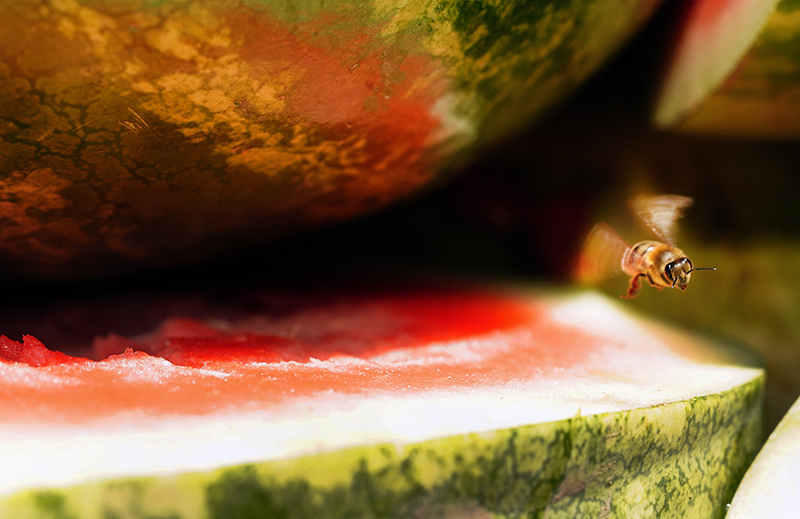As-needed pesticide use brings wild bees, preserves corn profits, and reduces pesticides by 95%

Published: December 7, 2021
Category: Pesticide News
A study from researchers at Purdue University indicates an as-needed approach to pesticides can boost some crop yields while attracting beneficial wild pollinators.
The study compared impacts of integrated pest management (IPM) versus conventional pest management. A regionally dominant row crop (corn) was co-produced with a pollinator-dependent crop (watermelon). A 95% reduction in pesticide treatments on IPM fields resulted, with an average 26% increase in watermelon yield.
“The IPM fields had a 130% increase in the number of flower visits over conventional fields,” said researcher Jacob Pecenka. He said the biggest players in pollination were native, wild bees—who had to travel at least 100 feet to get to the flowers, outnumbering honeybees that were placed nearby. “They are efficient pollinators and serious foragers…and resilient.”
Pesticides were applied to IPM fields only when pest levels reached thresholds that would lead to economic losses. That level was reached only four times, while conventional fields received 97 treatments.
Purdue professor Christian Krupke said the study suggests powerful pesticide weapons may not be required to control pests, and at minimum, not used so frequently.
Walmart recently introduced a policy requiring all fresh produce and floral providers (worldwide) to adopt IPM practices by 2025.
Project leader Ian Kaplan sees IPM as an option between growing conventionally and organically. “IPM can greatly reduce the amount of pesticide used … without taking the tool entirely away from farmers or putting the food supply at risk.”
Source: Purdue University
To view source article, visit:
Organic & Non-GMO Insights December 2021








